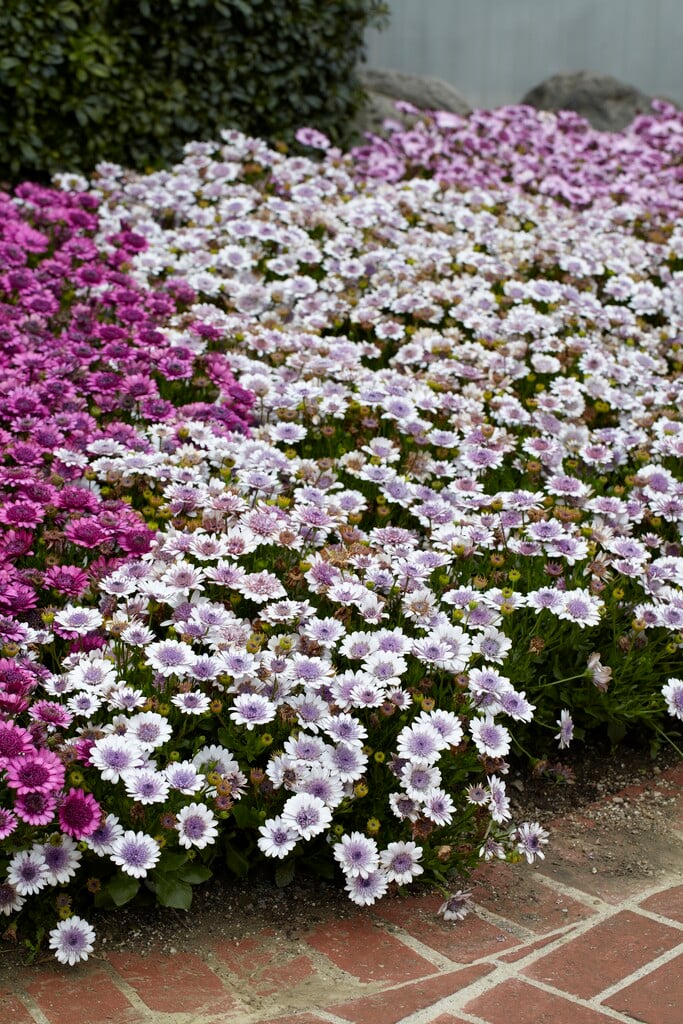Osteospermum FlowerPower Double White (FlowerPower Double Series)PBR
African daisy [FlowerPower Double White]
A compact, mound-forming, half-hardy perennial to 40cm in height with sparsely toothed, spoon-shaped, glossy, mid green leaves and large daisy-like flower, which do not close up, with a single row of white outer petals surrounding an anemone-like, double layer of pale-purple central florets, from early summer into autumn
Synonyms
Dimorphotheca ecklonis 'Kleoe10179'Osteospermum 'Kleoe10179'
see moreOsteospermum 3D Silver
Osteospermum FlowerPower Double White (FlowerPower Double Series)PBR
Size
Ultimate height
0.1–0.5 metresTime to ultimate height
1–2 yearsUltimate spread
0.1–0.5 metresGrowing conditions
Moisture
Well–drainedpH
Acid, Alkaline, NeutralColour & scent
| Stem | Flower | Foliage | Fruit | |
| Spring | Green | |||
|---|---|---|---|---|
| Summer | White Purple | Green | ||
| Autumn | White Purple | Green | ||
| Winter | Green |
Position
- Full sun
Aspect
South–facing or West–facing or East–facing
Exposure
Exposed or Sheltered Hardiness
H3Botanical details
- Family
- Asteraceae
- Native to GB / Ireland
- No
- Foliage
- Semi evergreen
- Habit
- Bushy
- Potentially harmful
- Pets (rabbits, rodents): Harmful if eaten. For further information and contact numbers regarding pets, see the HTA guide to potentially harmful plants
- Genus
Dimorhotheca can be annuals or woody-based, evergreen perennials with simple, alternate leaves and large daisy-like flower-heads in summer and autumn
- Name status
Trade
How to grow
Cultivation
Grow in light, moderately fertile, well-drained soil in a warm, sunny position. Tolerate poor soil, salt or drought. In frosty areas overwinter cuttings under glass
Propagation
Propagate by softwood cuttings in late spring or semi-hardwood cuttings in late summer from non-flowering shoots
Suggested planting locations and garden types
- City and courtyard gardens
- Coastal
- Cottage and informal garden
- Gravel garden
- Mediterranean climate plants
- Patio and container plants
- Bedding
- Conservatory and greenhouse
- Flower borders and beds
Pruning
Deadhead regularly and tidy in spring. No pruning required
Pests
May be susceptible to aphids
Diseases
May be susceptible to downy mildews and Verticillium wilt
Get involved
The RHS is the UK’s gardening charity, helping people and plants to grow - nurturing a healthier, happier world, one person and one plant at a time.
